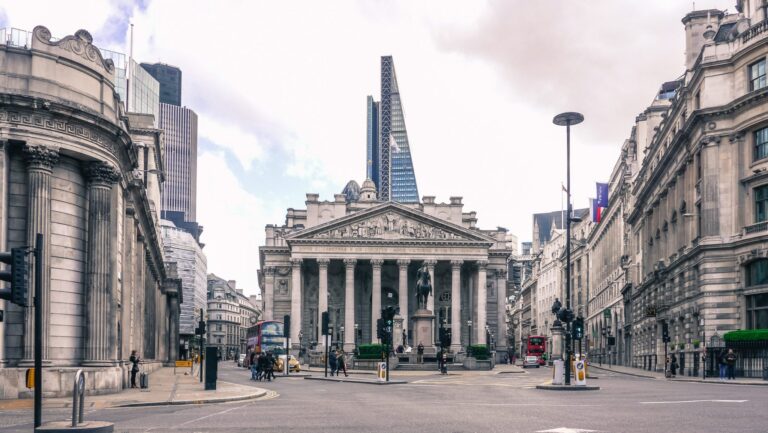New Jackson is one of Manchester city centre’s most exciting neighbourhoods.
Welcome to “Manc-hattan”, the Northern city whose skyscraper boom could be straight out of NYC.
New Jackson, the name of Manchester’s fast-emerging skyscraper district, could easily belong to the Big Apple, and its new residential towers with edgily urban names like Viadux and The Blade are just calling out for Tom Cruise to abseil down their glassy facades. Pop along to Club de Padel, New Jackson’s cool padel tennis club, and you’ll also spot vintage-style merch by Manchester brand UN:IK that’s big across the Pond.
There’s also touch of Dubai about Manchester’s lofty ambitions. Salboy – one of three developers who are powering the city’s new trend for towers, along with Renaker and ex-footballer Gary Neville’s Relentless Developments – are hoping for the green light for Viadux 2, which would be the tallest residential tower in Western Europe at 241m (790ft).
Central Manchester’s latest building boom – part funded by public money from the Greater Manchester Investment Fund – has been five years in the making, and in that time, it’s given rise to 22,000 new homes, thousands of new hotel rooms, and millions of square feet of new offices. New landmarks also include the riverside spaceship that is the Aviva Studios, the UK’s largest investment in a cultural venue since Tate Modern opened in 2000.
Deloitte call Manchester’s recent growth “transformative”. We all know there’s a desperate need nationwide to build more homes, and this is one city that is delivering. Manchester’s average new-build figure is 6,349 units a year. Last year alone, 2,402 new homes were completed in 10 schemes and another 11,764 units were under construction, according to Deloitte.
Manchester is the best place to invest
Manchester has overtaken London as the top city in England for residential investment, according to the commercial real estate firm Colliers. Their findings are based on the economy, research and development, liveability, property and sustainability. Property prices has risen by 33% in the last five years, which is more than double their report’s 20-city average of 15%, says Colliers.
The stats are superlative, but as every investor wants to know: is it sustainable? Are the factors underpinning this dramatic growth here to stay – or could this be 2008 all over again, when rocketing house prices and rampant over-building of boxy new flats crashed overnight and saw prices fall by up to 40%?
Colliers point to several factors that support Manchester’s sustained growth: a rising population (a predicted 1.14% a year over the next decade); tons of students (more than 100,000, with 60%+ continuing to live there after graduation); a big rental population; and bucketsful of entrepreneurs who live in the city and are launching new businesses. Colliers also predict strong GDP growth of 2.2% a year for the next five years, which outstrips the 20-city average of 1.8%.
It’s a “growth miracle”, writes journalist Daniel Timms in the online newspaper Manchester Mill, but it’s one based on stats, he argues, including job creation, which increased by 49% in the city between 2000-2021, compared with a UK average of 21%. While many Northern cities are blighted by moribund economies, dying high streets and low wages, says Timms, “Manchester is bucking the trend”.
Demand for luxury living
The city’s luxury new towers are certainly a tempting proposition – for those who can afford them. Swankiest of the new kids on the block are the W Residences, the first regional branded residences in the UK. With apartments costing up to £6m, they are the most expensive properties on the Manchester market – though they do come with fabulous amenities and services (as Savills Manchester’s Jamie Adams puts it, “no task too small, no ask too big”), interiors designed by Bowler James Brindley, and a Soho House is opening nearby.
They’re not ready for another three years, so rents are unknown – but a Last Gen landmark, Beecham Tower, has a 4,450 sq ft triplex available to rent for £18,000 per month. More typical of the new tower market is Viadux, where a two-bed can be rented for £2,500 a month – but that still comes with a skyscraper premium, given the average rent for the city centre’s M1 postcode is £1,313 a month, according to Rentoo.
International students will doubtless be among the mix for central Manchester’s new high-rise living. Tenants are also likely to come from the big companies who have moved their HQs to Manchester, including JP Morgan, Octopus Energy and Rolls Royce. “We have 75 of the FTSE companies with their head office in Manchester,” points out property investor Abi Hookway , who is buying one/two-bed flats in Deansgate, “within a mile of the city centre. Demand is off the chart,” she says.
She, for one, isn’t seeing an affordability issue. “In some high-rise developments, there are waiting lists of hundreds of tenants waiting for one apartment with rents at £2,500 per month,” Hookway comments.
Time will tell whether Manc-hattan is a bubble in the making – or whether New Jackson really will feel like a new area of the American metropolis in years to come.

Manchester city centre skyline









